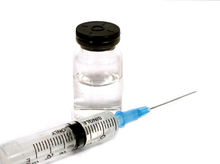A year ago, Dr Deborah Middleton from CSIRO’s Australian Animal Health Laboratory (AAHL) announced successful progress in the development of a Henra virus vaccine at the Australian Veterinary Association conference in Adelaide.
Saying, “Our trials so far have shown that the vaccine prevents the infection of horses with Hendra virus. A horse vaccine is crucial to breaking the cycle of Hendra virus transmission from flying foxes to horses and then to people, as it prevents both the horse developing the disease and passing it on,” Dr Middleton said.
Hendra virus first appeared in 1994 and five of the 14 known outbreaks have spread to people. The virus has killed four of the seven people infected.
At that time Dr. Middleton predicted that depending on further development, field trials and registration the vaccine might be available as early as 2012. Her team has continued to carry out further experiments to determine the lowest dose of antigen needed for the vaccination to be effective while keeping the cost of the product down.
“The high incidences of Hendra virus outbreaks during 2011 highlight the ongoing relevance of this important project in breaking the transmission cycle of this disease and reducing its impact on the horse-owning community,” Middleton said.
Although no date is given as to when the vaccine will be available for use by horse owners, the Australian Animal Health Laboratory expects a Hendra Virus vaccine for horses to be widely available in 2013.
Professor Martyn Jeggo says final testing is now being carried out and a vaccination program could be in place by this time next year.
"I would imagine there'll be an annual vaccination process that'll occur prior to the high-risk periods, essentially from May onwards up until late September," he said.
"Horses will be vaccinated I think prior to those risk periods in those risk areas, so it will be something that is routinely done.
"It's not a vaccine that you would roll out in the face of a major Hendra outbreak, you would vaccinate prior to that."
In the meantime, officials encourage veterinarians and horse owners to continue with precautions that reduce the risk of spreading the virus and that suspected casesbe reported immediately,.

